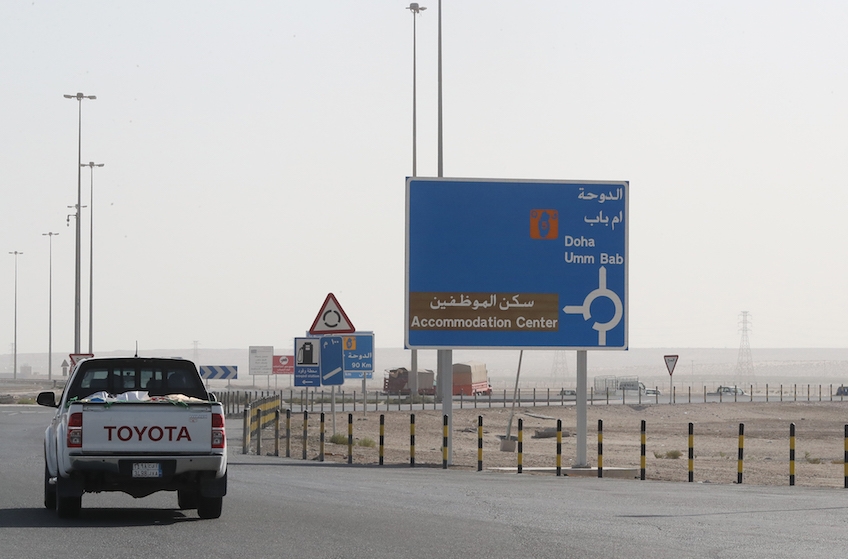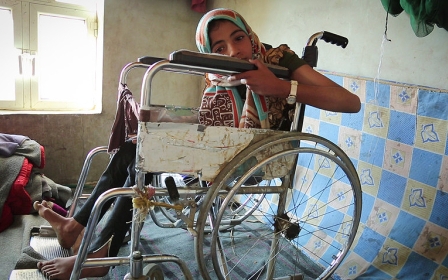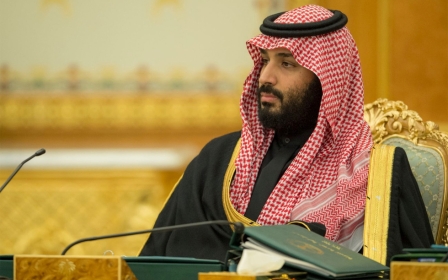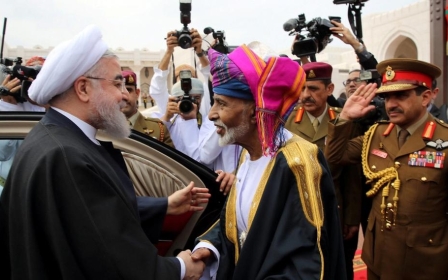Saudi Arabia 'permanently' closes land border to Qatar

Saudi Arabia has permanently closed its only land border to Qatar, as the crisis between the two countries nears eight months.
A letter issued by the Saudi customs directorate on Tuesday announced that the Salwa border gate had been shut-off permanently since Monday evening.
Qatar's neighbours broke ties with the country on 5 June, nominally in response to Qatar's support for "terrorism" in the region.
The Salwa border gate was closed two weeks later, although it was opened for a two-week period in August to allow Muslim pilgrims to travel to Mecca for the Hajj.
An annual meeting of the Gulf Cooperation Council (GCC) in Kuwait was cut short earlier this month after Saudi Arabia, the UAE and Bahrain declined to send senior officials to the meeting.
'Qatar's overall strategy is now that of an island rather than that of a peninsula...all decisions about procurement and import or export are made within the light of Qatar's new role as an island.'
Andreas Krieg, King's College London
Although Qatar is the wealthiest per capita country in the world, the blockade has had an impact on the country's economy and there has been a shortage of some supplies.
Last week, Qatar's finance ministry announced the country would run a deficit of $7.7bn in 2018, a third consecutive year in the red due to low energy prices.
The gas-rich emirate projected spending at $55.4bn and revenues at $47.7bn, both slightly higher than previously estimated, the ministry said in a statement.
"Qatar continues to make great progress in cutting its budget deficit, which can be attributed to lower energy prices and high development expenditure," said Finance Minister Ali Shareef al-Emadi.
"The blockade has, if anything, added impetus to our economic diversification strategy."
A shortfall of $7.8bn has been predicted for this year.
The ministry said it calculated oil income for next year at a conservative price of $45 a barrel, unchanged from 2017, despite a sharp rise in crude prices.
In 2016, Qatar posted its first budget deficit of $12bn after 15 years of surpluses.
The deficit would be financed through the issuance of debt, said the ministry.
Expenditure on major projects was projected at $25bn next year, almost the same level as in 2017, $3bn of which would be on World Cup 2022 projects, said the ministry.
Qatar, the world's largest exporter of liquefied natural gas and an oil producer, has been forced to tighten its belt following the 2014 collapse in the price of crude.
In recent years, Qatar has sought to reduce its reliance on hydrocarbons and its 2030 "National Vision" is to turn Qatar into a "knowledge-based economy".
Andreas Krieg, a political risk analyst at King's College London, said that the announcement was part of a "media war" designed to imply that there was a new permenant status quo in the Gulf.
He said that Qatar would "continue investing into new trade routes via Turkey, Iran and Oman" bypassing land restrictions.
"Qatar's overall strategy is now that of an island rather than that of a peninsula," he explained. "All decisions about procurement and import or export are made within the light of Qatar's new role as an island. So even if Saudi might decide later on to open the land border, Qatar has a contingency plan that in the long-run makes imports via the land route unnecessary.
"The only issue is that Saudis will not be able to come to Qatar anymore for the weekend as tourists. But there are ways around the land border by flying via Kuwait or Oman if necessary."
New MEE newsletter: Jerusalem Dispatch
Sign up to get the latest insights and analysis on Israel-Palestine, alongside Turkey Unpacked and other MEE newsletters
Middle East Eye delivers independent and unrivalled coverage and analysis of the Middle East, North Africa and beyond. To learn more about republishing this content and the associated fees, please fill out this form. More about MEE can be found here.




